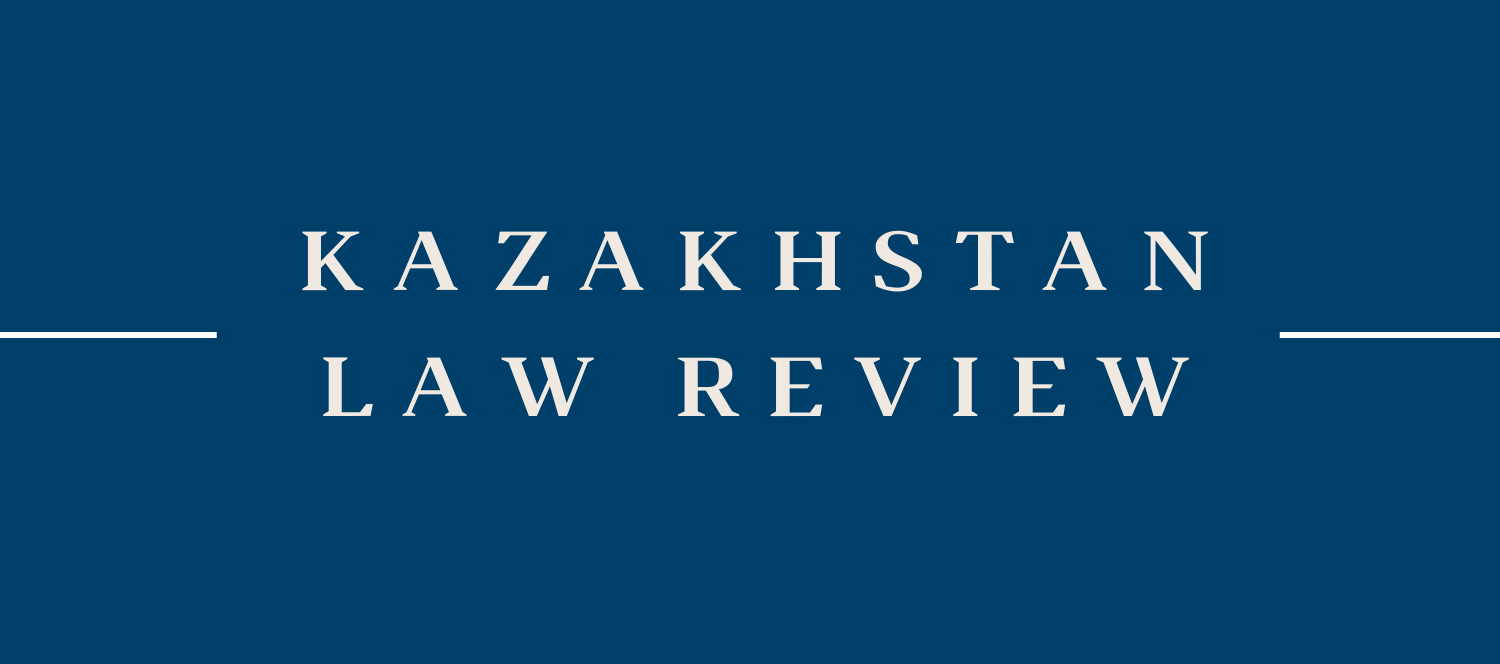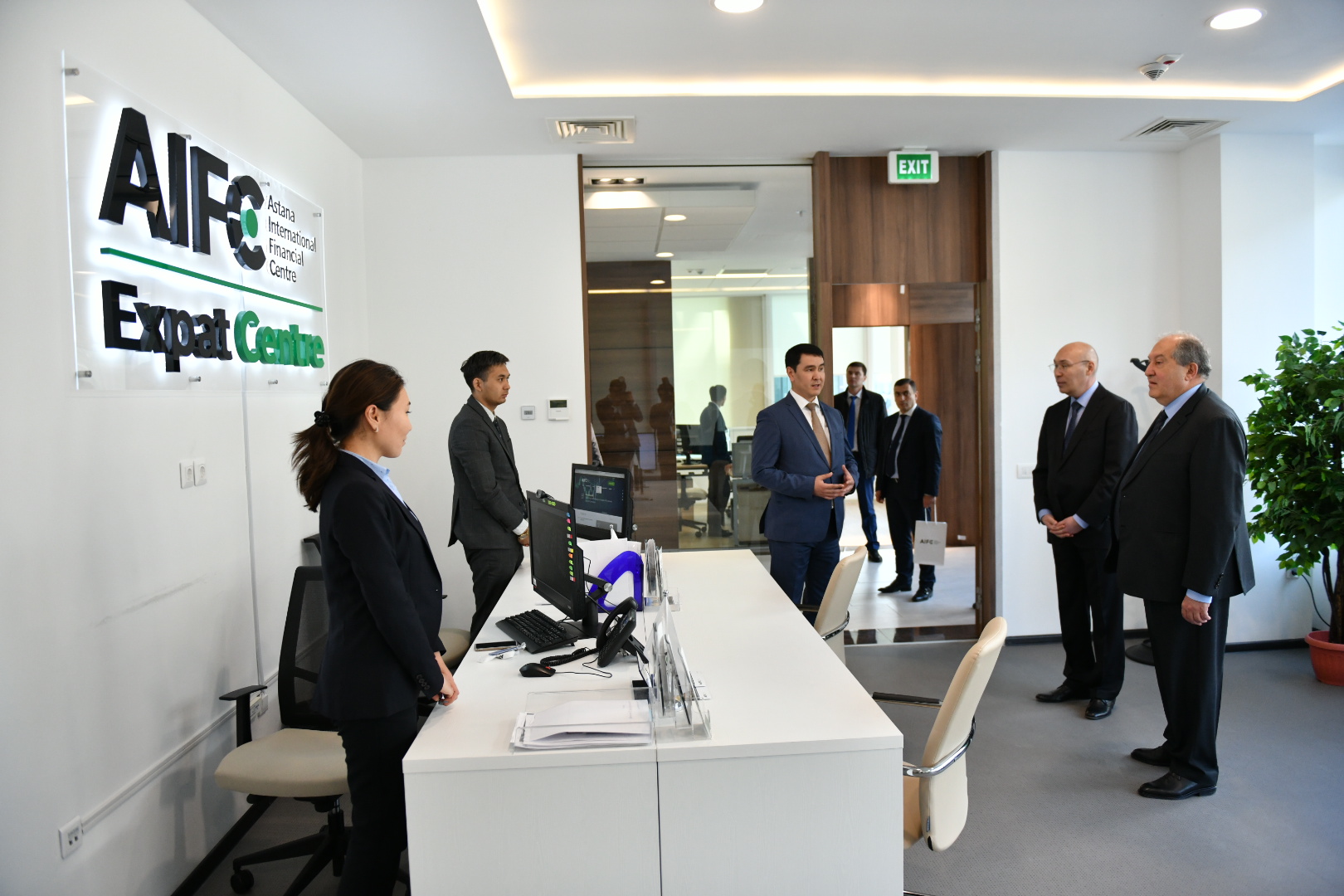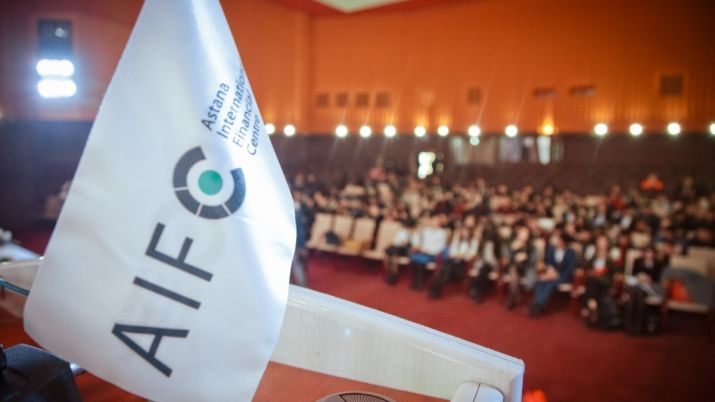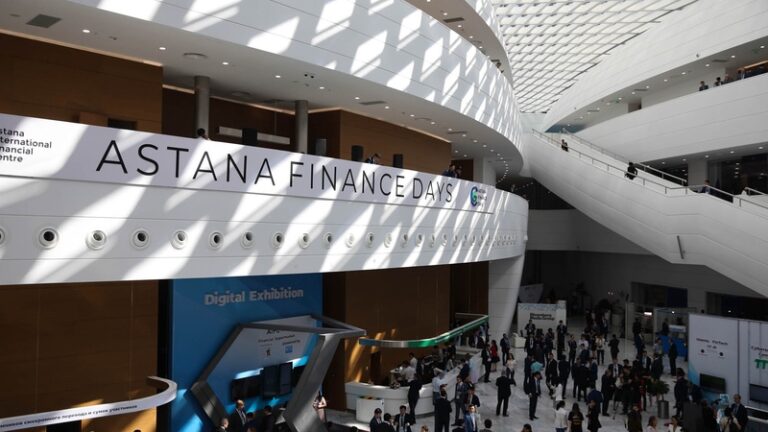Yekaterina Khamidullina, Partner, Director of AEQUITAS AIFC Branch
Emin Nadirov, Junior Associate AEQUITAS Law Firm
The Astana International Financial Centre (the «AIFC») offers companies a unique opportunity to work in a jurisdiction based on the principles of English law. It ensures a high level of legal protection, transparency and predictability of business practices making the AIFC attractive for different business entities from startups to major transnational corporations.
As regards the companies contemplating to carry out their activities in the AIFC, the process of obtaining a license or «authorisation», as it is called in the AIFC, is one of the first priority steps. This process plays an important role and represents a mechanism, which ensures company’s and its employees’ compliance with the established standards and requirements. However, the process may seem to be complicated and requiring significant efforts, especially for those encountering this issue for the first time. The information set out in this publication will be helpful for both those who have just started considering the opportunities of the AIFC and the companies that have already decided to enter this market, but need more detailed understanding of all nuances of the authorisation process.
We will consider ten most topical issues the companies have when preparing to authorisation in the AIFC.
- What is the process of authorisation in the AIFC?
- What is the difference between authorisation and recognition?
- How is the process of authorisation in the AIFC organised and how much time does it take?
- What requirements are set for the companies willing to get authorisation in the AIFC?
- What policies and procedures the companies must develop to obtain a license?
- What is the difference between the policies and procedures?
- What obligations originate after obtaining the In-Principle Approval?
- What types of activities are subject to mandatory authorisation in the AIFC?
- What obligations originate with the companies after obtaining authorisation in the AIFC?
- How much does authorisation in the AIFC cost?
- What is the process of authorisation in the AIFC?
The key regulatory legal acts governing the issues of authorisation in the AIFC are the AIFC General Rules [1] and the AIFC Financial Services Framework [2], which establish a list of the types of activities, which require company authorization. The AIFC Financial Services Framework provides for the key functions and authorities of the financial regulator of the AIFC, which is the Astana Financial Services Authority (the «AFSA»), and contains the provisions relating to licenses (authorisation), prohibitions, control over activities of certain AIFC participants, etc.
The AIFC acts do not contain the definition of the term «authorisation». According to the AIFC’s website, authorisation means «access» to the opportunity to carry out activities involving provision of financial and other services in the AIFC. The process involves a preliminary company verification before its registration and the start of its activities in the AIFC.
Authorisation is used as an instrument allowing to prevent from potential violations of the conditions of work in the AIFC. The Authorisations Division achieves this by setting high selection criteria and thorough verification of all applications. This division strives to make all authorised firms and separate persons compliant with the general set of the minimum standards. Accordingly, the AIFC bases itself on the assumption that it is much easier to initially set high market entry threshold and admit only experienced and verified players than to apply subsequent sanctions to the violating companies and force them to comply with legislation.
When considering applications, the Authorisations Division bases itself on the principles of good regulation and acknowledges the differences in businesses of different companies and private persons (provision 7-1 of the AIFC Financial Services Framework).
2. What is the difference between authorisation and recognition?
Authorisation and Recognition are similar to each other and may potentially be confusing for the persons contemplating to launch business in the AIFC. We previously mentioned that authorisation is a selection procedure applied by the AIFC to new companies contemplating to work in the AIFC. It applies to startups and new companies, which are the members of the groups of companies.
Understood as recognition is a procedure for recognition of an existing company from another jurisdiction in the AIFC, which company holds a relevant license for certain activities. This process is regulated by the AIFC Recognition Rules [3]. To obtain recognition a person may apply to AFSA with a request for its recognition as a company, which is not an AIFC participant [4]. Recognition gives an opportunity to the financial market institutions (trading platforms and clearing and settlement institutions) and qualified potential market participants (brokers) to be officially recognised to carry out activities in the AIFC without the necessity to establish physical presence in the AIFC. Recognition allows the companies to carry out their activities in the following forms:
- recognised non-AIFC member (recognised participant, which is not an AIFC participant) – this form applies to qualified potential market participants (brokers);
- recognised non-AIFC market institution (recognised market institution, which is not an AIFC participant) – this form applies to the financial market institutions (trading platforms and clearing and settlement institutions); and
- Foreign Fund Manager (managing company of an investment fund).
3. How is the process of authorisation in the AIFC organized and how much time does it take?
The authorisation process includes the following stages:
- pre-application (stage preceding the filing of an application);
- application (stage of filing an application, documents and payment of fees);
- assessment (stage of assessment of the application by the employees of AFSA);
- In-Principle Approval (stage of fulfillment of the pre-license conditions, obtainment of a principal consent and registration of a company); and
- authorisation (stage of authorisation, start of applying the supervision rules of the AIFC).
Pre-application. Prior to filing of an application for authorisation in the AIFC, it is necessary to collect the set of required documents and develop the internal company management policies. At this stage, we recommend addressing the Participant Support & Sales team of AIFC Authority to discuss the issues relating to the documents and applications of the company. Fulfilment of recommendations of the support team significantly increases quality of the submitted documents and expedites further entire process of authorisation.
Drafting of documents includes elaboration of a regulatory business plan, which must contain information on the company’s strategy, organisational structure, management, resources, and financial forecasts. It is also necessary to determine the type of activities, and check which regulated, market or ancillary services will be required for licensing.
Application. At this stage, it is necessary to file an application via the AIFC Digital Residency portal and pay a relevant fee before filing the application. Then all required documents must be submitted to AFSA. The set includes a correctly filled out form of the application, regulatory business plan and other required documents.
After receiving the application, AFSA notifies an applicant of the receipt of the application within 2 business days and appoints a responsible employee, after which it conducts the initial review as to completeness and correctness of the submitted data. AFSA sends the results of its initial review within 4 weeks, during which period it evaluates the business and verifies information in various databases.
After obtaining the AFSA’s comments, the applicant has 2 months to rectify the situation. AFSA sends its comments within 2 weeks after receiving an updated application set.
Assessment. AFSA may request for submission of additional information and documents, such as an application and documents for approval of an Approved Individual and/or a Designated Individual. Furthermore, AFSA may ask to provide clarifications regarding the submitted documents and conduct an interview with the key candidates to the managing positions of the company. The Approved Individuals are the persons whose appointment is approved by AFSA for the performance of the so-called «controlled functions». They are the employees of an Authorised Person and hold the most important positions within the Authorised Person. According to the AIFC Glossary, an «Authorised Person» means either an authorised firm, or an authorised market institution. An authorised firm is an AIFC participant, which obtained the AFSA’s license for carrying out one or several regulated types of activities. An authorised market institution is an AIFC participant, which obtained the AFSA’s license for carrying out one or several types of the market activities.
The controlled functions cover the activities of the following employees of companies: Senior Executive Officer, Director, Finance Officer, and Compliance Officer (paragraphs 2.2.1- 2.2.5 of the AIFC General Rules).
A Designated Individual is a person approved by a company to perform a «Designated Function» on behalf of an authorised company. The Designated Individuals hold less important positions in a company as compared to the employees whose activities fall under the controlled functions. They do not require approval of AFSA, but may be approved by the companies only after AFSA conducts verification and, accordingly, AFSA must be notified of their appointment. They include a Senior Manager, Responsible Officer, and a Money Laundering Reporting Officer (paragraph 2.3.1- 2.3.4 of the AIFC General Rules).
At this stage, the applicant must convince AFSA that it has enough financial resources, competent personnel, adequate internal control systems and means to carry out the contemplated financial services.
At average, the time required to process an application from the moment AFSA receives a full set of documents is 2-3 months. However, depending on complexity of the contemplated operations of an applicant and quality of the very application, the process may take much more time.
In-Principle approval. After successful accomplishment of the previous stages, the company receives a principle approval from AFSA. This means that the company may register a legal entity in the AIFC.
Authorisation. After fulfillment of all preliminary conditions, AFSA issues a final license after the company registration. Then the company is referred under supervision of a relevant AFSA division, which will exercise control over its activities and fulfillment of regulatory requirements.
Thus, the general authorisation process may take from several months up to one year, depending on many factors, including interaction with AFSA and prompt fulfillment of all requirements.
4. What requirements are set for the companies willing to get authorisation in the AIFC?
We previously mentioned that it is important for the AIFC to make sure that companies have enough financial and management resources to carry out regulated activities.
The companies must submit a detailed description of their business models and strategies, including the types of activities, target markets, financial products, and analysis of competitors. It is necessary to provide the corporate management structure, which must include the composition of the board of directors, senior management, and details of the corporate structure. The companies must also describe their legal structures and connections with other structures of groups and regulators.
Financial and operational resources of companies must be demonstrated through the financial forecasts for 3 years, contemplated budgets, available capital, and the minimum requirements to the capital. The sources of funds and wealth of shareholders must be confirmed by relevant documents, such as the bank statements or audited financial statements.
The companies should be ready to demonstrate the way they will comply with applicable rules and norms of the AIFC, such as the AIFC General Rules, AIFC Anti-Money Laundering and Counter-Terrorist Financing and Sanctions [5], AIFC Conduct of Business Rules [6], etc.
5. What policies and procedures the companies must develop to obtain a license?
The companies striving to undergo authorisation in the AIFC must draft a regulatory business plan and financial plan, and other plans, which will demonstrate the company’s readiness to comply with all necessary requirements and standards.
It is important for the AIFC to get answers to the following questions:
- Who? (it is necessary to provide description of a company, specifying its history, current owners, directors and senior management, as well as a group structure, if applicable);
- Why? (it is necessary to specify the reason for selecting the AIFC and set out well-minded arguments in favor of success of a contemplated project, including to disclose the sources of financing and «life-support» of the project. Among other things, it is necessary to attach a market analysis and submit the financial forecasts of the company);
- What? (it is necessary to specify the products, which a company intends to offer to a market and information on their clients); and
- How? (it is necessary to specify how a company will conduct its business and exercise control over compliance with the AIFC’s requirements).
Provision of exhaustive answers to these questions is a «touchstone» of the process of authorisation in the AIFC.
In practice, AFSA requires to submit the following plans (policies) where it expects to see the answers to the above questions:
- regulatory business plan;
- financial plan;
- employment plan;
- AML policy;
- compliance monitoring procedure;
- risk management policy;
- business continuity plan and disaster recovery plan; and
- other plans, if so requested by AFSA.
6. What is the difference between policies and procedures?
According to the AIFC laws, in addition to plans, internal governing documents of a company also include policies and procedures. They differ from each other and are aimed at resolution of different company’s needs.
Policy is a high-level document, which may contain general description of the developed and incorporated programs. A policy sets out the general principles and approaches of a company in a specific sphere.
Procedures serve as the detailed instructions for internal use. They must contain full description of all mandatory programs and measures introduced by a company. The procedures describe in detail the steps and actions, which must be taken by employees to ensure compliance with policies and regulatory requirements.
7. What obligations originate after obtaining the In-Principle Approval?
After undergoing the authorisation stages preceding the obtainment of the In-Principle Approval, companies receive the AFSA’s consent and the right to take further steps.
They will have to ensure fulfillment of all conditions specified for a regulated type of activities and comply with other requirements of AFSA, if any.
Amon these requirements, it is worth mentioning the necessity to ensure sufficient capital. For example, for the companies providing trust services, it is required to have at least USD 200,000 as the minimum base capital and bring the cost of its assets at least to the level of 25% of its annual operational costs [7].
Please note that AFSA may establish other conditions, which must be fulfilled before obtaining the final license. As an example, there are technical and operational requirements on implementation of certain technical solutions and systems for ensuring compliance with regulatory requirements and submission of additional reporting, and additional inspections.
8. What types of activities are subject to mandatory authorisation in the AIFC?
Subject to mandatory authorisation are the companies, which intend to carry out the following types of activities:
| Category | Type of activities | Minimum base capital (USD) |
| Investments | Dealing in Investments as Principal | 50,000 – 500,000 |
| Dealing in Investments as Agent | 50,000 | |
| Operating a Multilateral Trading Facility | Amount equal to operational costs for 12 months | |
| Operating an Organised Trading Facility | Amount equal to operational costs for 12 months | |
| Managing Investments | 150,000 | |
| Managing a Collective Investment Scheme | 500,000 | |
| Advising on Investments | 10,000 | |
| Arranging Deals in Investments | 10,000 | |
| Islamic Banking | Islamic Banking Business | 10,000,000 |
| Providing Islamic Financing | 2,000,000 | |
| Takaful Business | 7,000,000 | |
| Insurance | Insurance Intermediation | 7,000 – 13,000 |
| Effecting Contracts of Insurance | 100,000 – 300,000 | |
| Carrying on Contracts of Insurance | ||
| Insurance Management | 7,000 – 13,000 | |
| General | Operating a Representative Office | Not applicable |
| Banking | Accepting Deposits | 10,000,000 |
| Providing Credit | 2,000,000 | |
| Advising on a Credit Facility | 10,000 | |
| Arranging a Credit Facility | 10,000 | |
| Providing Money Services | 200,000 | |
| Opening and Operating Bank Accounts | 10,000,000 | |
| Operation of a Payment System | Not applicable | |
| Custody activities | Providing Custody | 500,000 |
| Arranging Custody | 10,000 | |
| Funds | Providing Trust Services | 200,000 |
| Providing Fund Administration | 10,000 | |
| Acting as the Trustee of a Fund | 200,000 | |
| Managing a Restricted Profit-Sharing Investment Account | 200,000 |
For details, please see the AIFC Prudential Rules, such as the AIFC Prudential Rules for Investment Firms [7], AIFC Banking Business Prudential Rules [8], AIFC Prudential Rules for Insurance Intermediaries [9], AIFC Insurance and Reinsurance Prudential Rules [10], and AIFC Islamic Banking Business Prudential Rules [11].
9. What obligations originate with the companies after obtaining authorisation in the AIFC?
Once the companies obtain the In-Principle Approval and register their legal entities in the AIFC, and fulfil other requirements to authorisation, the companies may start their activities and do business subject to compliance with certain requirements. They relate to regulatory compliance, compliance with the anti-money laundering and counter-terrorist financing, doing business rules, and other prudential rules. Furthermore, it is necessary to regularly submit reporting to AFSA, including financial statements and internal control reports. Each year within 6 months after the end of a reporting year, the companies must submit the annual reports, including the registers of shareholders, directors and beneficial owners, and confirmation of the annual report.
- Annual accounts may be submitted either in the audited or non-audited form.
Submission term: within 6 months after the end of a financial year.
- Audited – submitted by private companies with the turnover of more than USD 5 mln.
- Non-audited – submitted by private companies with the turnover from USD 500,000 up to USD 5 mln.
- Annual Return
Submission term: within 6 months after the end of a financial year.
Annual returns are submitted by private companies with the annual turnover of more than USD 500,000 or, at average, more than 20 shareholders within a year, for which annual accounts are drafted.
- Annual confirmation statement
Submission term: within 14 days after the end of a financial year from the moment of a company registration. This form must be used for submission of the annual confirmation statements instead of the annual accounts.
Apart from the above requirements, the companies must also maintain sufficient level of capital and liquidity to be able to cover operational costs and ensure financial stability, pay annual supervision fees, which vary depending on the type of activities of a company and may include fixed and variable components. There may be additional fees for changes in licenses and other administrative services.
10. How much does authorisation in the AIFC cost?
Authorisation in the AIFC is a fee-paid service and includes different payments to AFSA. These payments include as follows:
- authorisation fee – paid only once;
- registration fee – paid only once; and
- supervision fee – paid each year.
The amounts of fees vary depending on a regulated type of activities.
In addition to the above fees, a company may encounter other expenses, which do not relate to registration, such as:
- lease of the office premises;
- expenses for the General Director, Compliance Officer and other persons performing the controlled functions;
- submission of reporting with the cost as per the below table:
| Name of reporting | Cost (USD) | |
| Online | ||
| Annual accounts | 10 | 20 |
| Annual return | 10 | 20 |
| Annual confirmation | 10 | 20 |
- payment of taxes, if applicable. The AIFC provides for certain exceptions exempting companies carrying out certain types of activities from the necessity to pay certain taxes; and
- costs of banking services.
Thus, it is difficult to determine the costs relating to authorisation of a company in the AIFC. The total costs will be determined subject to a selected type of activities and many other factors.
List of sources:
[1] AIFC General Rules No. FR0001 dated 2017, amended as of 1 January 2024.
[2] AIFC Financial Services Framework, amended as of 1 January 2024.
[3] AIFC Recognition Rules No. FR0004 dated 2017, amended as of 29 June 2022.
[4] Tair Kulteleev, Procedure for registration and licensing of private companies in the Astana International Financial Centre, https://online.zakon.kz/Document/?doc_id=33673225&pos=6;-108#pos=6;-108.
[5] AIFC Anti-Money Laundering and Counter-Terrorist Financing and Sanctions Rules No. FR0008 dated 2017, amended as of 1 January 2024.
[6] AIFC Conduct of Business Rules No. FR0005 dated 2017, amended as of 1 January 2024.
[7] AIFC Prudential Rules for Investment Firms No. FR0011 dated 2017, amended as of 1 January 2022.
[8] AIFC Banking Business Prudential Rules No. FR0023 dated 2018, amended as of 10 December 2022.
[9] AIFC Prudential Rules for Insurance Intermediaries № FR0012 dated 2017, amended as of 2 December 2018.
[10] AIFC Insurance and Reinsurance Prudential Rules No. FR0030 dated 2018, amended as of 13 December 2020.
[11] AIFC Islamic Banking Business Prudential Rules No. FR0014 dated 2017, amended as of 11 May 2020.




